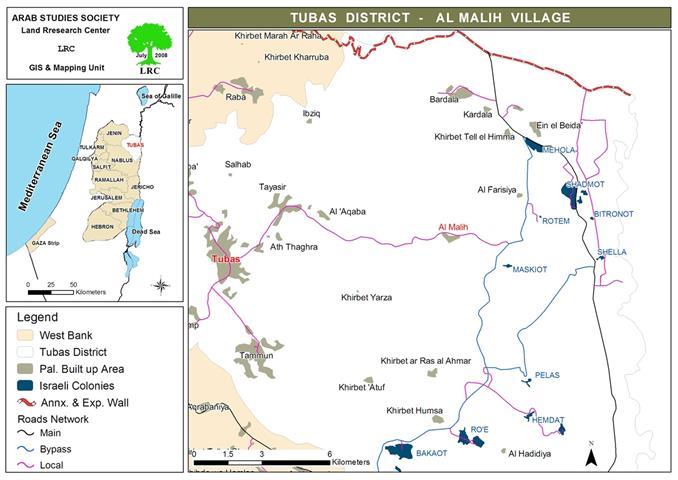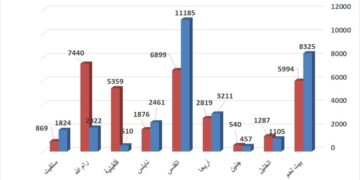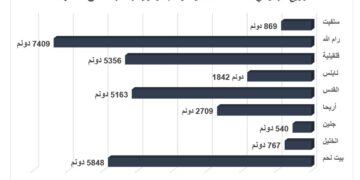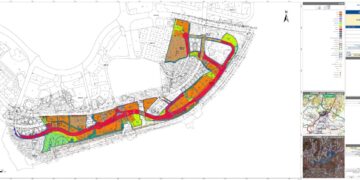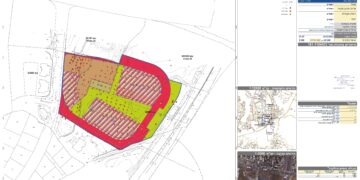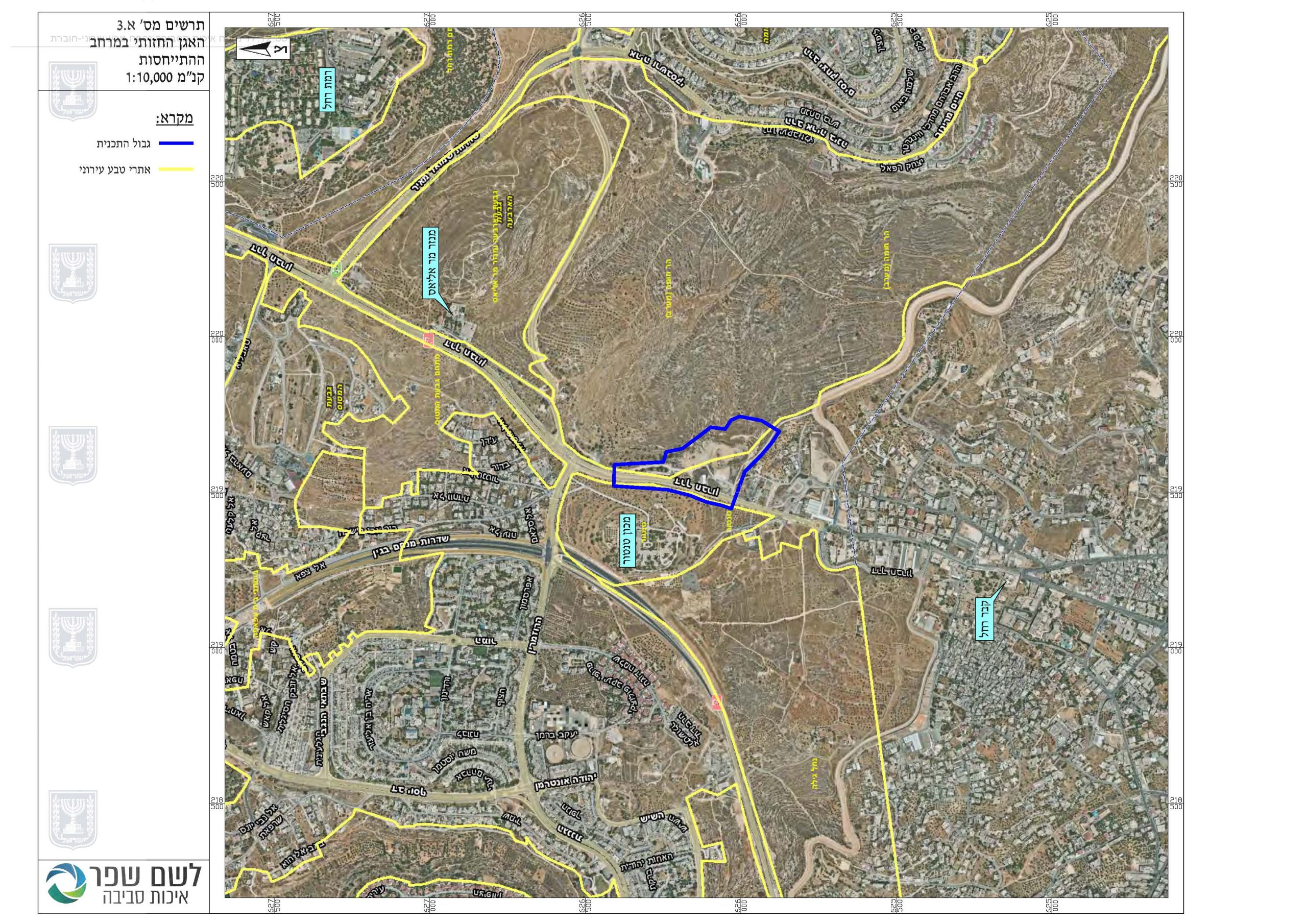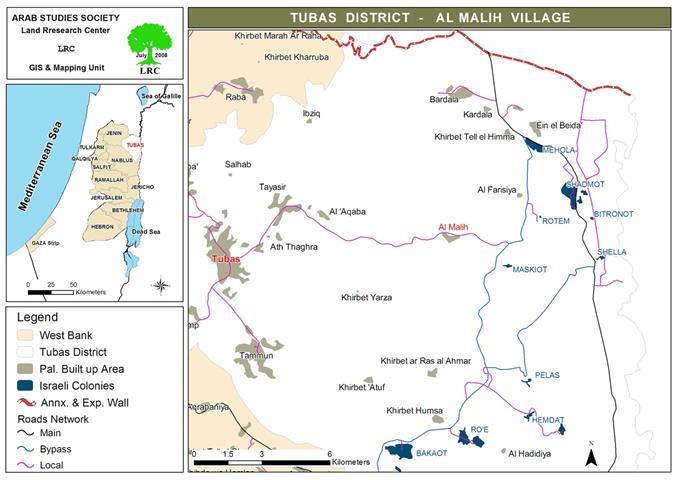Violation: The initial construction of new colonial units in the colony of Maskiot.
Date: May 12th, 2010.
Violator: The Council of Colonies in the Jordan Valley.
Details:
As the “indirect negotiations” between the Palestinians and the Israeli occupation government started in the early days of May 2010, the so-called Council of Colonies in the Jordan Valley issued a tender to build 20 new colonial housing units in the colony of Maskiot located east of the Governorate of Tubas. Shortly after the tender was issued, Israeli heavy machinery embarked upon land leveling and plowing in preparation for the upcoming construction. A number of mobile caravans were setup in an effort to bring more colonists to live in them.
Photo 1 & Photo 2: The colony of Maskiot in Wadi Al Malih.
Since 1967 Israeli occupation forces and colonists in the Jordan Valley have implemented land grab policies in a coordinated fashion to devour as much Palestinian lands as possible. Occupation authorities enlarged colonies, constructed a network of bypass roads to connect the colonies, built a racist Wall, expanded crossing terminals, established movement obstacles, created closed military area, etc. which left Palestinians with little or no land to meet their national aspirations. Israeli colonists in the West Bank (including those in the Jordan Valley) are used as a tool to implement colonial policies in the area as they express the racist bases upon which they were raised. Such bases were created and advocated for by leading Rabbis who frequently call for the forced evictions of Palestinians and even killing them in an effort to control their lands.
The recent violation is the last in a series of violations carried by Israeli occupation forces in the area; a few days before the recent declaration Israeli forces have confiscated water pumps used by the Palestinians of Khirbet Al Farisiya near the colony of Maskiot. A few days afterward, occupation forces declared the area of Ein Al Hilweh as a Closed Military Area as a prelude to the eviction of tens of families residing in the area tens of years before the occupation reigned supreme.
The Colony of Maskiot Expands in the Jordan Valley:
The colony of Maskiot is an agricultural colony in the Jordan Valley. Its colonists enjoy exceptional services as they are provided with agricultural lands, marketing facilities and large quantities of water that surpasses by far the amounts provided to the Palestinians living in close proximity of the colony. That is in addition to providing lucrative housing options for young colonist couples while connecting Israeli colonies in the Jordan Valley with an advanced road and transportation networks.
The following is a track record of the expansion of the colony of Maskiot on the expenses of Palestinian lands in the Valley:
-
The colony of Makiot was established in 2002 on a site that was used as a military camp since the 1970s. The camp was used to oversee and control the area and to inspect the Jordanian borders as Wadi Al Malih overlooks the Jordanian mountains. In the year 2002, the military camp was evacuated and replaced by a number of Israeli religious students.
-
In the aftermath of the Israeli pullout of Gaza in 2005, tens of Gush Katif ex-colonists were transferred to the colony of Maskiot. They lived in temporary houses until more permanent structures were built for them.
-
In January 2006, the ex-Israeli Minister of War, Amir Peretz, declared the intention to build 100 colonial units in the new colony. International outcry and pressure led him to withdraw his decision at the time.
-
In 2008, permission was given by the relevant occupation authorities to replace the mobile caravans with permanent housing units. The first stage of the construction called for the construction of 20 colonial units to house colonists who were evicted from the colony of Shibrat Hayam in the Gaza Strip. By the end of 2008, about 570 colonists were living in Maskiot on an area estimated to be around 609 dunums.
-
In May 2010, the Council of Colonies in the Jordan Valley issued a tender to build 20 additional colonial units in the colony.
The Jordan Valley at the Brink:
The separation, movement restriction, colonial expansion and service deprivation policies coupled with the network of bypass and military roads leads to the belief that Israeli occupation authorities have since long ago started to implement the Allon Plan. The Plan was suggested in the early 1970s as a solution for the “problem” of the future of the Valley. As such, Israeli occupation forces intensified land confiscation in the area for colonial and military purposes. Occupation forces controlled more than 400,000 dunums as Closed Military Areas while an additional 23,000 dunums are used as military bases and more than 25,000 are reserved for colonial activities. Only a small area is left for Palestinians to be used for agricultural purposes as the Palestinians of the Jordan Valley depend 100% on agriculture as a source of income.
Furthermore, Israeli occupation forces took advantage of the Oslo-related A-B-C area classification to re-program its control of the Valley and to redistribute its occupation forces throughout it in an effort to keep control of the strategic locations and to keep Palestinian control of the area at bay. In contrast, Israeli colonial expansion was encouraged and actively pursued to accommodate the so-called “natural expansion” of the colonies.
The consistent implementation of colonial policies in the Valley has led to the overall control of the groundwater as colonists extract more than 40 m3 million of water to be used for agricultural purposes on the expense of the Palestinians of the Valley. That is in addition to the fact that Palestinians are deprived of their share in the Jordan River while they are prevented from using the lands of Al Zor area which is located parallel to the Jordan River and is considered the most fertile lands in the Valley.
The policies and actions of separation, siege and access to land impediments implemented against the Palestinians of the Jordan Valley by the occupation forces aim at forcing the Palestinians to leave their lands. In turn, such lands will be absorbed by colonies spread throughout the Valley. Colonists in the area enjoy a multitude of privileges that are unparallel even in West bank colonies. Such privileges include long term bank loans as well as large quantities of water and transportation facilitation which encouraged a large number of colonists to target the Jordan Valley for their colonial activities.
Prepared by:


